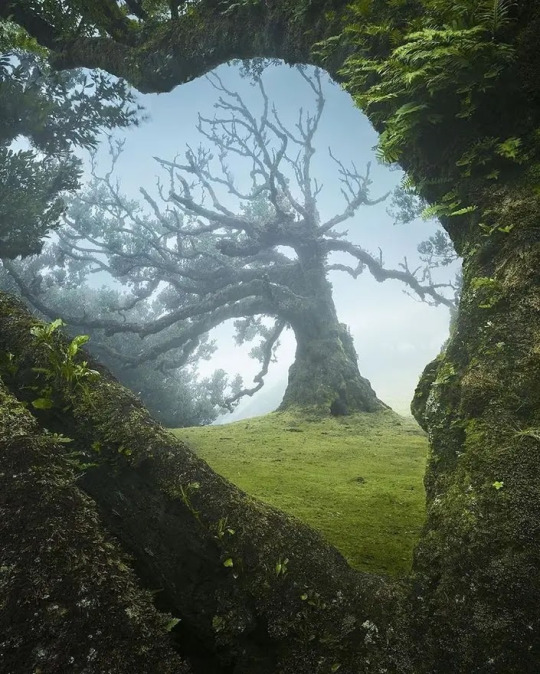Text

The successful growth of spinach requires attention to environment, soil, and cultivation techniques. Understanding plant preferences and creating optimal conditions ensures a successful harvest. Key points include choosing the right season, maximizing sunlight exposure, and using organic matter in soil preparation.
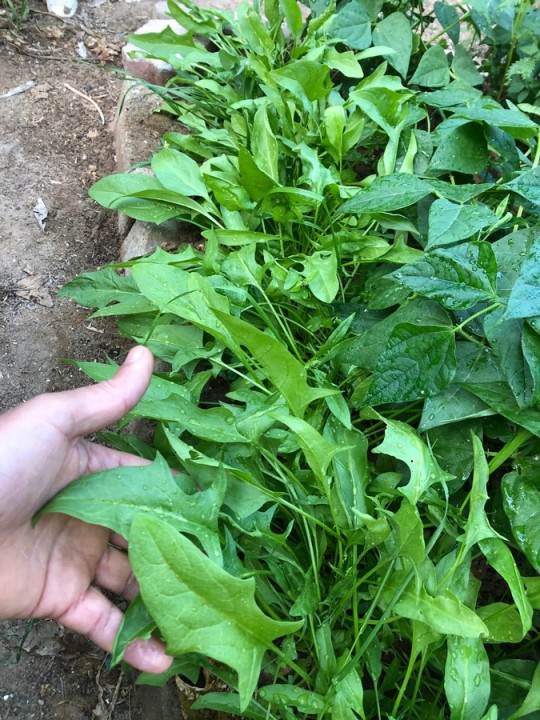
Readers are encouraged to apply these tips for success in spinach cultivation. Visit the blog for more gardening resources to enhance vegetable gardening knowledge and skills, catering to beginners and experienced gardeners alike.
The Ultimate Spinach Growing Guide: From Seed to Harvest
4 notes
·
View notes
Text
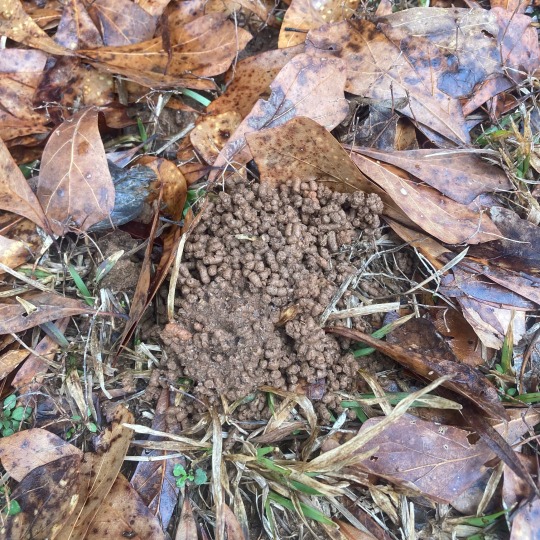
Aeration… air, worm holes, elimination of waste that is a benefit to the entire system. These piles of worm poo give me inspiration. They excite me to continue to create healthy soil. They encourage me to share with others the dimensional joy of observation. Nature is abundant and we are responsible to keep it that way.
Save the soil.
Save the butterflies.
27 notes
·
View notes
Text
Ursula K. Le Guin once said that “[t]o use the world well, to be able to stop wasting it and our time in it, we need to relearn our being in it.” Crucially, Nausicaä imagines a new way of being in the world by radically reframing our relation to it and our understanding of it. Instead of a desert, the inhospitable environment in Nausicaä is known as the Sea of Decay. But far from a dying and deadened milieu, the Sea of Decay is in fact brimming with life. This is hardly ironic but for a dominant binary and linear ontology around life and death. The living and the dead are not fixed in a binary but bound together in an intimate, dynamic, circling dance. Decay and regeneration are two sides of the same coin. Reflecting on when he moved to the Yanase River, Miyazaki recalls, “The river was more like a polluted ditch, filled with leeches and midge larvae. I was amazed by how noble these midges were and impressed that they would live in such a place.” The Sea of Decay, teeming with life, is arguably the site of some of the most luxuriant and resplendent imagery in all of Miyazaki’s films.
745 notes
·
View notes
Photo

By Masami Teraoka from Life and Health (1972), via 50 Watts
6K notes
·
View notes
Text
youtube
Gratitude to the Maté family for having these conversations publicly and for carving out space for "imperfect" processing and change (for lack of a better term).
4 notes
·
View notes
Text

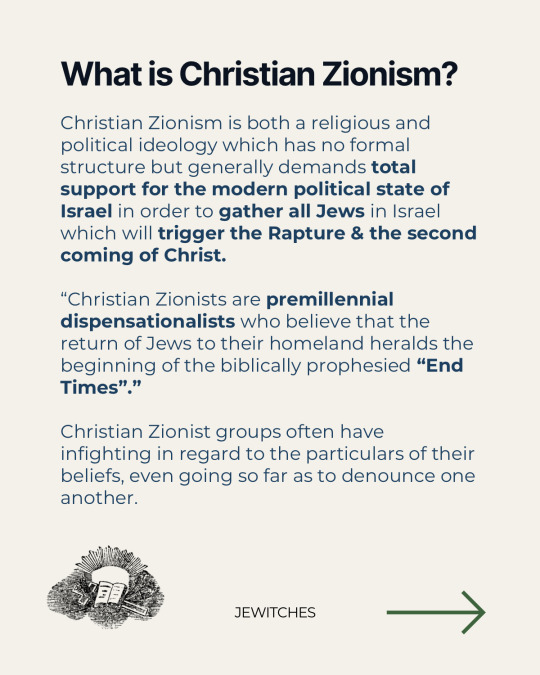
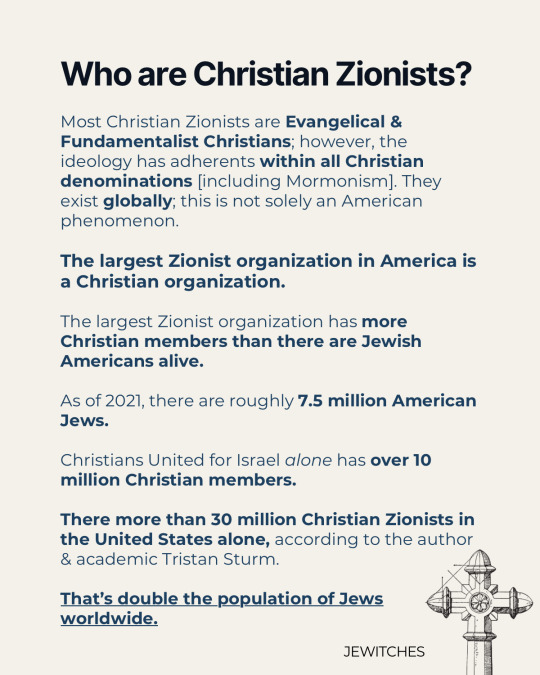






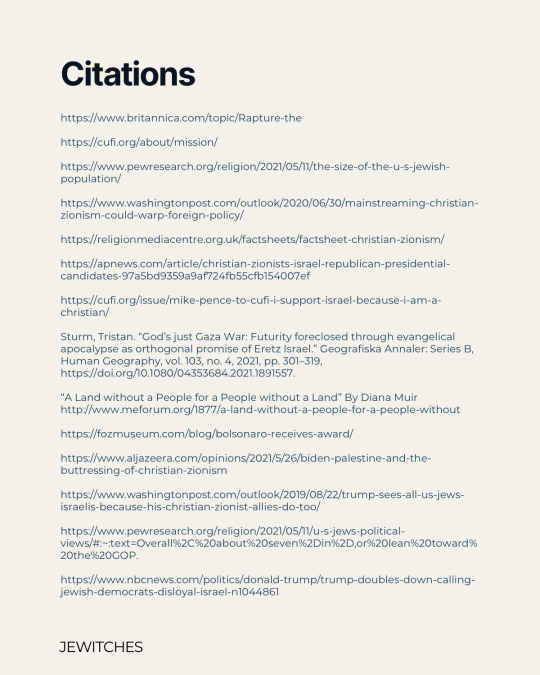
This post is meant to serve as a jumping off point. Those citations exist for a reason and we encourage you to read further. This post can only address so much.
There was so much that simply couldn’t be covered in such a short post; not to mention a breadth of research that feels like it should be must read material for this topic.
A huge thank you to willatheewisps and a.hearth.witch (on instagram) for going over this prior to posting.
Let us know in the comments if you’re interested in a post going over the origins of the Christian Zionist movement, as well as how it inspired Jewish Zionism.
Did you know that it was a “proto-Christian Zionist” Church of Scotland clergyman & author Alexander Keith who coined the phrase, “land without a people and a people without a land” in his 1843 book?
5K notes
·
View notes
Text



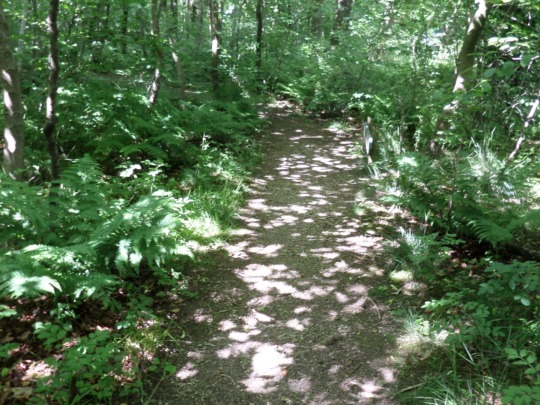
my watery friend... are you too brushed with the pattern of the dappled light...?
92K notes
·
View notes
Text
youtube
"The people that criticize Israel do so with a lot of pain in their hearts. They actually want justice, and they want justice for everybody. They criticize Israel not because its Jewish, but because of what it does. And what it does has been called recently by 2,000 Israeli and Jewish academics and rabbis and historians, apartheid. What it does has been called by the former deputy chief of Israeli Defense Staff, similar to the situation of Jews in Nazi Germany. This is an Israeli soldier who said that, not an anti-Semite. And he said that just as the Nazi thugs could attack Jews with impunity and even with the support of the police, so can settlers in the occupied territories attack, kill, destroy Palestinian property, murder even children. And when the Palestinians fight back, the army shows up to support the settlers.
So a lot of people who are not in the least racist one way or the other have genuinely come to rue and lament and oppose the actions of the Israeli state. And as a Jew, I'm one of them. And when a Jew speaks up...
If you're a pro-Zionist who fully believes that Jewishness is identifiable with Zionism in Israel, then naturally you'll think that anyone who criticizes Israel is either an anti-Semite or a self-hating Jew. But that perception is a product of your belief that the Jewishness is identified with Israel. Whereas if you look at it historically, there were many Jews all along who criticized the Zionist movement, and who pointed out the potential dangers, and who warned what's going to happen. [...] There were 500 Jews that were arrested in Washington a few days ago for protesting.
It's such a painful situation, and there's such suffering. Recently, Israel has suffered in a way it hasn't suffered before, and that's to be lamented. The people there need to be supported because they're having a hard time. There are many Israeli homeless right now because of the threats. And I know from Israeli friends of mine that Israeli mental health services are overwhelmed. That is true.
It also has to be acknowledged, that when it comes to the scale of suffering imposed by one party on the other... there's barely any comparison. Historically speaking, the number of deaths, the imprisonments, the suffering, the deprivation, has been the prerogative of the stronger party.
I'm not speaking morally here. I'm speaking practically. I'm not seeking to justify anything. I'm saying, do we want to move forward to peace, or do we just want to harbor our emotions? We're entitled to our emotions, but when we're emotional and only emotional, our perspective narrows, and we get defensive. We get consumed by self defense, and [we] attack. Understandable, but that doesn't lead to peace.
What leads to peace is a willingness to understand the experience of the other, and for us to be guided by the parts of our brain that are adult. That happens in the mid-frontal cortex, where empathy, insight, compassion, self-awareness are modulated. So we need to deal with our emotions -- not to repress them, not to reject them -- but also not let them be the guides of our actions. Especially when those emotions are conditioned by a view of history that for the most part excludes the experience of the other."
(The interviews goes on. Fantastic list of books and other speakers in the description, too.)
35 notes
·
View notes
Text
AI image and text generation is pure primitive accumulation: expropriation of labour from the many for the enrichment and advancement of a few Silicon Valley technology companies and their billionaire owners. These companies made their money by inserting themselves into every aspect of everyday life, including the most personal and creative areas of our lives: our secret passions, our private conversations, our likenesses and our dreams. They enclosed our imaginations in much the same manner as landlords and robber barons enclosed once-common lands. They promised that in doing so they would open up new realms of human experience, give us access to all human knowledge, and create new kinds of human connection. Instead, they are selling us back our dreams repackaged as the products of machines, with the only promise being that they’ll make even more money advertising on the back of them.
122 notes
·
View notes
Text
Existential discomfort and ADHD
Picture a face. Could be a made-up face, could be the face of someone you know, could be an amalgamation of the two.
When I try to picture a face (or anything else, for that matter), everything about it never stops moving. The head is a layering of all different kinds of head shapes and sometimes random other shapes, always subtly morphing and adjusting and occasionally flashing out into irrelevant silhouettes before coming back to a general human head.
Focusing on any one feature or area is like zooming into a melting painting. Everything in my mind’s eye is always in a state of becoming, both in terms of movement and composition. Whatever I’m trying to visualize, most of everything within or around it is only partially there, fading and warping in and out of a hazy existence. A mouth is simultaneously multiple kinds of mouths in multiple expressions without necessarily feeling impossible or contradictory, any of which might bring about distracting phrases or moods or scenes in my head. The mouth will also occasionally be some unrecognizable shape, as if in response to a suddenly relocated vector point, and will sometimes simply cease to be a mouth at all, or disappear entirely.
In my mind, anything is hard to look at for too long. The longer or harder I try to look, the more elusive it is. Like the scientific eye peering closer and closer at atomic particles, everything is always breaking the rules and splitting into smaller and smaller stuff. More and more relational context, less and less hard truths. This experience can be quite frustrating, even depressing. It’s hard to visualize, oh, anything. It’s hard to make plans for expression, meals, outfits, to synthesize information, prioritize tasks, and to project my intentions into the future. Sometimes I feel like I have a learning or processing disorder, and by definition perhaps I do. It’s hard to get diagnosed with stuff as an adult, especially without health insurance in the US.
But diagnosis can also be another shackle. I don’t think my mental experience is “wrong,” and in fact it’s probably quite common. Just as I may be swimming in the vast body of God (for lack of a better term), eternally morphing and becoming and being composed by/of all happenings simultaneously, my mind is also part of this.
It also feels existential because my efforts to hold something cause it to decompose through my brain-fingers. It sometimes feels like life is flowing by me and I can’t point my life force well enough to engage with it. Visualization is part of creativity, motivation, and preparation. It’s how we align ourselves with a future. Simply writing this post has essentially taken me months.
But maybe there’s a middle ground. Maybe we don’t all engage with life exactly the same way, and maybe engaging with it where we’re at makes it easier to broaden our styles of engagement over time. While using modern concepts (or language at all) to identify my experience has helped me in many ways, it may also be holding me to preconceived ideas of normal, right, useful, healthy, et cetera, and thus tricking me into a self-limiting understanding of self.
Easing into that understanding has required staying with this discomfort -- the discomfort of struggling to focus and to express, the discomfort of looking into this experience long enough to see what all it touches, without getting too distracted by what it feels like and what all that may bring up in my mind and heart. It’s possible to stay with it and learn from it and process it, though it may take many tries and many years.
And God knows, I’m still uncomfortable. Processing discomfort doesn’t necessarily mean “fixing.” “Fixing” assumes a problem. Processing just requires giving the energy somewhere to go, spreading out across a wider nervous system until the backlog of energy has eased and the flood has receded, and we can see the patterns left on the shorelines. The effects are writ there and we’re living them. There’s plenty of work there, alone.
May we stand in our discomforts long enough to process whatever’s waiting inside them.
1 note
·
View note
Text
ok so instead of going on my usual the earth is doomed spiral I started looking into solar punk solutions and stumbled across the practice of permaculture & found a free 50 video series from the university of oregon on it if anyone else would like to learn abt ways we can actually start restoring earths whole deal
2K notes
·
View notes
Text
"Marginal improvements to agricultural soils around the world would store enough carbon to keep the world within 1.5C of global heating, new research suggests.
Farming techniques that improve long-term fertility and yields can also help to store more carbon in soils but are often ignored in favor of intensive techniques using large amounts of artificial fertilizer, much of it wasted, that can increase greenhouse gas emissions.
Using better farming techniques to store 1 percent more carbon in about half of the world’s agricultural soils would be enough to absorb about 31 gigatons of carbon dioxide a year, according to new data. That amount is not far off the 32 gigaton gap between current planned emissions reduction globally per year and the amount of carbon that must be cut by 2030 to stay within 1.5C.
The estimates were carried out by Jacqueline McGlade, the former chief scientist at the UN environment program and former executive director of the European Environment Agency. She found that storing more carbon in the top 30 centimeters of agricultural soils would be feasible in many regions where soils are currently degraded.
McGlade now leads a commercial organization that sells soil data to farmers. Downforce Technologies uses publicly available global data, satellite images, and lidar to assess in detail how much carbon is stored in soils, which can now be done down to the level of individual fields.
“Outside the farming sector, people do not understand how important soils are to the climate,” said McGlade. “Changing farming could make soils carbon negative, making them absorb carbon, and reducing the cost of farming.”
She said farmers could face a short-term cost while they changed their methods, away from the overuse of artificial fertilizer, but after a transition period of two to three years their yields would improve and their soils would be much healthier...
Arable farmers could sequester more carbon within their soils by changing their crop rotation, planting cover crops such as clover, or using direct drilling, which allows crops to be planted without the need for ploughing. Livestock farmers could improve their soils by growing more native grasses.
Hedgerows also help to sequester carbon in the soil, because they have large underground networks of mycorrhizal fungi and microbes that can extend meters into the field. Farmers have spent decades removing hedgerows to make intensive farming easier, but restoring them, and maintaining existing hedgerows, would improve biodiversity, reduce the erosion of topsoil, and help to stop harmful agricultural runoff, which is a key polluter of rivers."
-via The Grist, July 8, 2023
4K notes
·
View notes
Text
Video Source | Yurok Tribe | Save California Salmon | Redwoods Rising
17K notes
·
View notes
Text
Analysis of data from dozens of foraging societies around the world shows that women hunt in at least 79% of these societies, opposing the widespread belief that men exclusively hunt and women exclusively gather. Abigail Anderson of Seattle Pacific University, US, and colleagues presented these findings in the open-access journal PLOS ONE on June 28, 2023.
A common belief holds that, among foraging populations, men have typically hunted animals while women gathered plant products for food. However, mounting archaeological evidence from across human history and prehistory is challenging this paradigm; for instance, women in many societies have been found buried alongside big-game hunting tools.
Some researchers have suggested that women's role as hunters was confined to the past, with more recent foraging societies following the paradigm of men as hunters and women as gatherers. To investigate that possibility, Anderson and colleagues analyzed data from the past 100 years on 63 foraging societies around the world, including societies in North and South America, Africa, Australia, Asia, and the Oceanic region.
They found that women hunt in 79% of the analyzed societies, regardless of their status as mothers. More than 70% of female hunting appears to be intentional—as opposed to opportunistic killing of animals encountered while performing other activities, and intentional hunting by women appears to target game of all sizes, most often large game.
The analysis also revealed that women are actively involved in teaching hunting practices and that they often employ a greater variety of weapon choice and hunting strategies than men.
These findings suggest that, in many foraging societies, women are skilled hunters and play an instrumental role in the practice, adding to the evidence opposing long-held perceptions about gender roles in foraging societies. The authors note that these stereotypes have influenced previous archaeological studies, with, for instance, some researchers reluctant to interpret objects buried with women as hunting tools. They call for reevaluation of such evidence and caution against misapplying the idea of men as hunters and women as gatherers in future research.
The authors add, "Evidence from around the world shows that women participate in subsistence hunting in the majority of cultures."
22K notes
·
View notes
